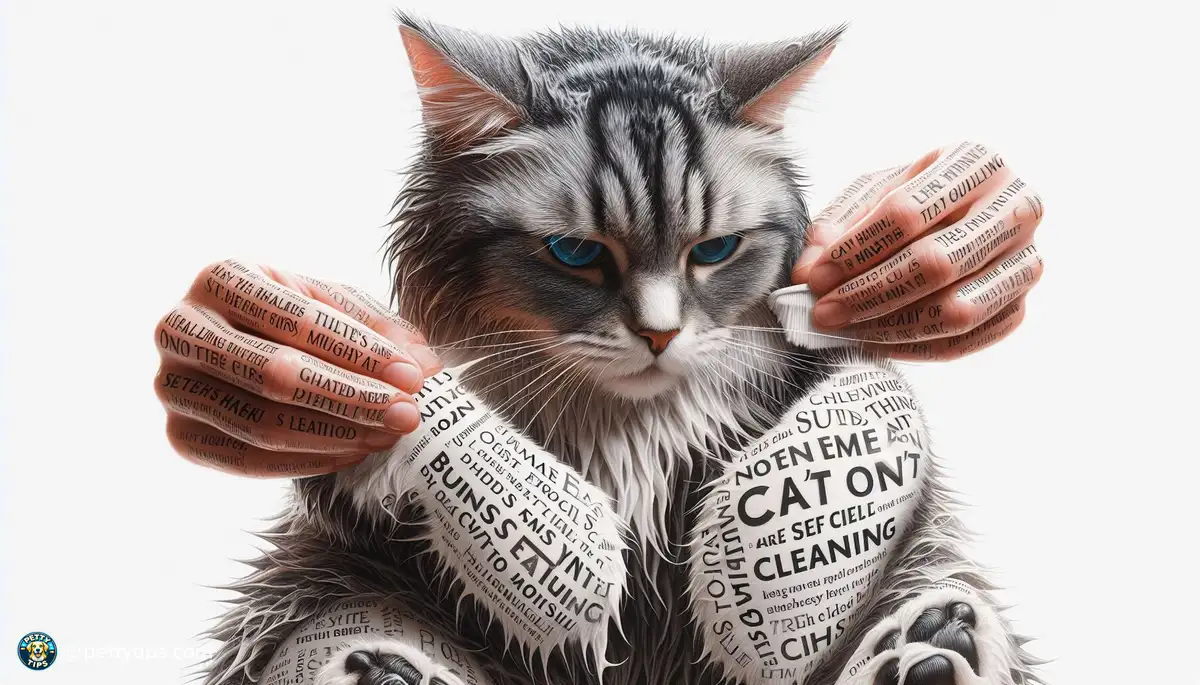
Unveiling the Mystery Behind Chirping and Trilling in Cats
Mark Sung - Sep 03, 2024 - 7 min read


It's a common misconception that cats are self-sufficient groomers and don't need any human intervention. While it's true that cats spend a significant amount of time grooming themselves, they still benefit from regular grooming sessions with their human companions. Grooming helps to remove loose fur, dirt, and debris from their coats, preventing matting and reducing the risk of hairballs. Moreover, grooming allows you to check for any abnormalities such as skin irritations, lumps, or parasites, ensuring your cat's overall health and well-being.
Many people believe that all cats hate water and that bathing them is a traumatic experience. While it's true that some cats may be wary of water, not all cats fit this stereotype. In fact, some breeds, like the Maine Coon and the Turkish Van, are known to enjoy water and may even seek it out for play. Additionally, introducing your cat to water gradually and using positive reinforcement can help alleviate any fear or anxiety they may have. Regular baths can be beneficial for cats with skin conditions or allergies, as well as those who have gotten into something particularly messy.
There's a belief that shaving your cat's fur in the summer will help keep them cool and prevent overheating. However, this is not necessarily true and can actually do more harm than good. A cat's coat acts as insulation, helping to regulate their body temperature in both hot and cold weather. Shaving their fur can expose their skin to the sun's harmful rays, increasing the risk of sunburn and skin cancer. Instead of shaving, provide plenty of shade and fresh water for your cat during the warmer months, and brush them regularly to remove loose fur and prevent matting.
Some people believe that cats will always resist being brushed and that it's not worth the effort. While it's true that some cats may initially be wary of brushing, with patience and positive reinforcement, most can learn to tolerate and even enjoy the experience. regular brushing helps to remove loose fur, detangle knots, and distribute natural oils throughout your cat's coat, keeping it healthy and shiny. It also provides an opportunity for bonding between you and your feline friend, strengthening your relationship.
While shedding season may be the most obvious time to brush your cat, regular grooming should be a year-round activity. Cats shed their fur continuously, with some breeds shedding more than others. By brushing your cat regularly, you can help reduce the amount of loose fur in your home and prevent matting. It also allows you to monitor your cat's skin and coat for any signs of issues, such as parasites or skin infections. Aim for at least a few brushing sessions per week to keep your cat's coat in top condition.
It's a common misconception that cats will groom away any mats or tangles in their fur on their own. While cats are fastidious groomers, they may not always be able to reach or remove all mats, especially in hard-to-reach areas like their underarms or behind their ears. Ignoring mats can lead to discomfort for your cat and even skin irritation or infection. Regular brushing can help prevent mats from forming in the first place and allows you to address any tangles before they become a problem.
There's a misconception that bathing cats is cruel or unnecessary, as they are capable of cleaning themselves. While it's true that cats are proficient groomers, there are times when a bath may be necessary, such as if your cat gets into something sticky or smelly. The key is to make the experience as stress-free as possible by using a gentle, cat-friendly shampoo and warm water. Introduce your cat to bathing gradually, starting with short sessions and providing plenty of treats and praise. With patience and positive reinforcement, bathing can become a manageable and even enjoyable experience for both you and your cat.
On the flip side, there's a belief that cats should never be bathed under any circumstances. While it's true that most cats do a good job of keeping themselves clean, there are situations where a bath may be necessary for their health and hygiene. For example, elderly or overweight cats may have difficulty grooming themselves effectively, leading to matting or skin infections. Cats with certain medical conditions, such as allergies or flea infestations, may also benefit from regular baths to alleviate symptoms and remove irritants from their skin and coat. As with any grooming procedure, the key is to approach bathing with patience, gentleness, and positive reinforcement.